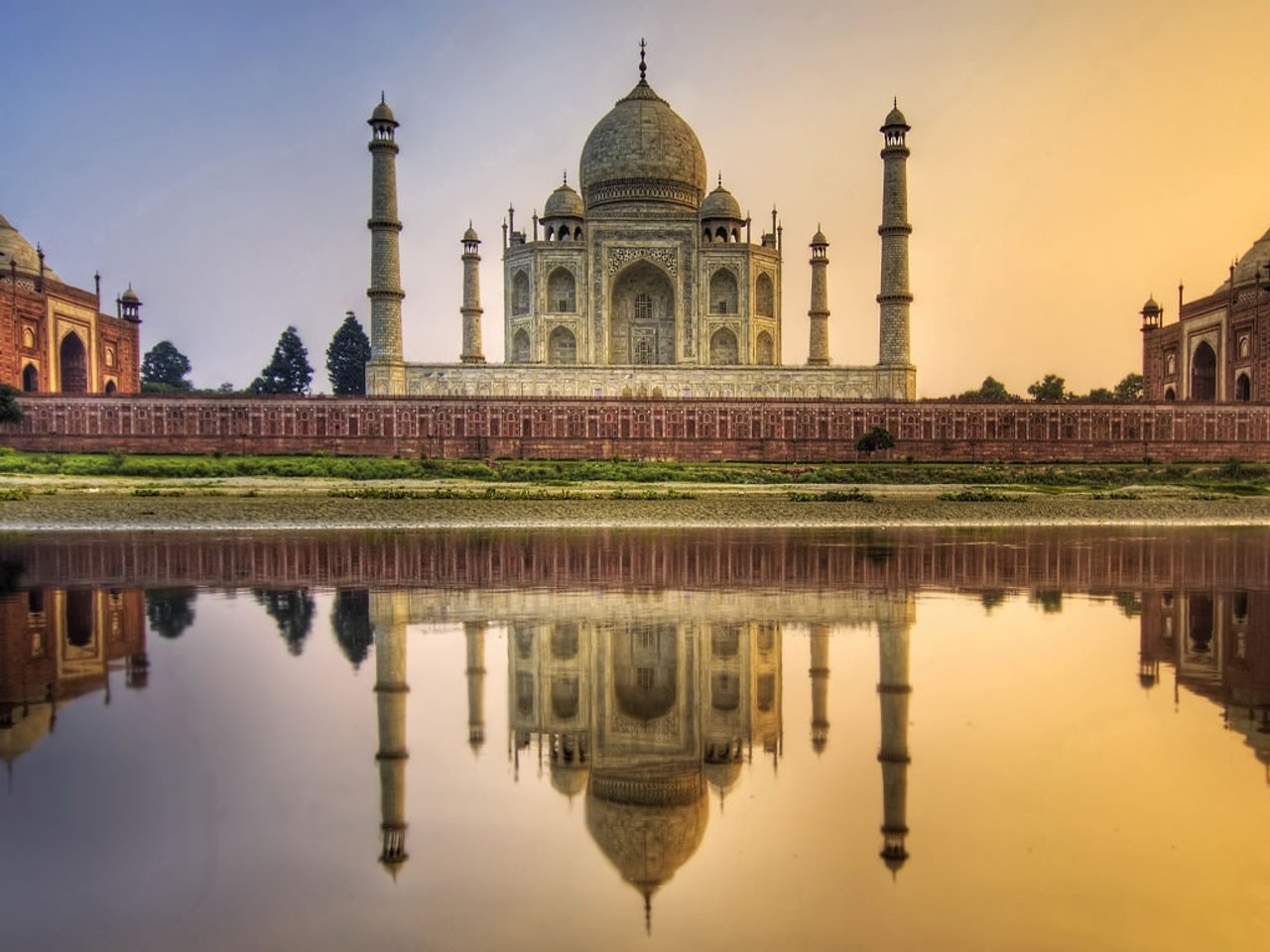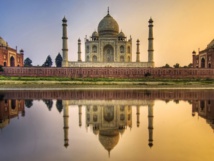Perhaps memories of that time of upheaval were too dark to allow them to cast a shadow on the euphoria of nation building, perhaps too recent and painful to recount in public.
But 70 years after the end of British rule and the division of the sub-continent into Hindu-majority India and Muslim-majority Pakistan, tales from some of the 10-12 million displaced are finally being collected, documented and shared.
There is a sense of urgency as many who witnessed the barbarity are now in their eighties and nineties.
"I have dreams of my Multan home even now. It was a trauma leaving everything behind. We thought we were going for a month or two ... even after all these years I would love to go back," says Lalita Kinra, 87, in New Delhi, her home for seven decades.
As they left Multan, now in Pakistan's Punjab province, Kinra's mother gave her son and two daughters a gold coin each in case they got separated - and a small bottle of cyanide "in case we were attacked."
Some 500 kilometres away, in Ghartal village near the Pakistani city of Sialkot, Abdullah, 82, tells an interviewer: "I was born in India ... Ours was an all-Muslim village ... it was difficult to leave."
Kinra is one of hundreds whose memories have been recorded at the Museum of Partition in the city of Amritsar in Indian Punjab. Abdullah's interview is being documented for The 1947 Partition Archive, an online repository of such accounts.
"There are museums to remember the Holocaust, there is an apartheid museum, but there was no public memorial or permanent museum for an epochal event that transformed millions of lives," says author Kishwar Desai, chair of the Arts and Cultural Heritage Trust that is behind the museum project.
"The museum raises the veil of silence on partition and records personal experiences at the core of India's independence. For 70 years there was no memorial where people could visit, mourn their personal losses, or a physical space for memory, healing and reconciliation," Desai says.
The museum is not just about violence and horrors, but also tells stories of Hindus and Muslims who rescued each other.
"It will memorialise and document the courage and resilience of the ordinary people whose huge sacrifices played a key role in the building of the nation," says Desai.
Located barely 20 kilometres from the India-Pakistan border, the Partition Museum is a repository of oral narratives, documents and artefacts such as letters and diaries.
The museum is to be formally inaugurated on August 17, the day in 1947 that the new border came into being.
The 1947 Partition Archive plans to release on August 10 a section of the 4,300 oral history interviews it has collected on Stanford University Library's Digital Repository.
Many of the interviews are too sensitive to allow open access, say the archivists. They will be available to researchers at select libraries.
Archive founder Guneeta Singh Bhalla, a physicist turned partition archivist, says the idea for the project took root when she saw oral testimonies and archives while visiting the Hiroshima Peace Memorial in 2008.
Bhalla, who belongs to a Sikh family affected by partition, set up the non-profit in 2011 to track survivors and preserve their stories.
The archive has 500 citizen historians and has spawned a grassroots movement, spurring thousands of conversations on social media.
"When you start talking about it in the open and make it interesting, it draws youth into their grandparents' past and changes the way partition was being treated as hidden history," Bhalla says.
Desai, whose grandparents were among those who crossed to India in 1947, says: "Partition remained a forgotten part of our history, but something which today's generation should not forget."
Both the museum and the archive are helmed by women, built on public funds, and many of the team members are in their 20s and 30s.
Indian writer Ritu Menon says a new generation of scholars are examining partition in ways that transcend formal history. "So it is opening up, and becoming interesting. It has become post-amnesia, that is to say no longer a traumatic phase."
Menon has co-authored with activist and educator Kamla Bhasin an account of the trauma women underwent during those brutal months in their book "Borders & Boundaries: Women in India's Partition."
"Some big revelations came up during the course of our work - before partition religion was not as much of a dividing factor as in later years, people used to co-exist peacefully," Bhalla says.
"Partition as an event gave rise to unnecessary political tensions which we experience to this date. My generation has inherited the issue but we didn't create this problem," says Bhalla, in her 30s.
"In partition there were no good guys or bad guys," says Indian feminist writer Urvashi Butalia, who was among the earliest to record partition histories in her 1998 book "The Other Side of Silence."
"Muslims, Hindus and Sikhs - every family had victims and perpetrators of violence, everyone was involved."
At Amritsar's Partition Museum, the final gallery is the Gallery of Hope - featuring a tree where people write messages on paper leaves.
"As people exit they will get a realization that these are man-made disasters and trauma that are avoidable, a lesson we should always keep in mind," Desai says.
-----------------------------------------------------------------------------------------------------------------------------
But 70 years after the end of British rule and the division of the sub-continent into Hindu-majority India and Muslim-majority Pakistan, tales from some of the 10-12 million displaced are finally being collected, documented and shared.
There is a sense of urgency as many who witnessed the barbarity are now in their eighties and nineties.
"I have dreams of my Multan home even now. It was a trauma leaving everything behind. We thought we were going for a month or two ... even after all these years I would love to go back," says Lalita Kinra, 87, in New Delhi, her home for seven decades.
As they left Multan, now in Pakistan's Punjab province, Kinra's mother gave her son and two daughters a gold coin each in case they got separated - and a small bottle of cyanide "in case we were attacked."
Some 500 kilometres away, in Ghartal village near the Pakistani city of Sialkot, Abdullah, 82, tells an interviewer: "I was born in India ... Ours was an all-Muslim village ... it was difficult to leave."
Kinra is one of hundreds whose memories have been recorded at the Museum of Partition in the city of Amritsar in Indian Punjab. Abdullah's interview is being documented for The 1947 Partition Archive, an online repository of such accounts.
"There are museums to remember the Holocaust, there is an apartheid museum, but there was no public memorial or permanent museum for an epochal event that transformed millions of lives," says author Kishwar Desai, chair of the Arts and Cultural Heritage Trust that is behind the museum project.
"The museum raises the veil of silence on partition and records personal experiences at the core of India's independence. For 70 years there was no memorial where people could visit, mourn their personal losses, or a physical space for memory, healing and reconciliation," Desai says.
The museum is not just about violence and horrors, but also tells stories of Hindus and Muslims who rescued each other.
"It will memorialise and document the courage and resilience of the ordinary people whose huge sacrifices played a key role in the building of the nation," says Desai.
Located barely 20 kilometres from the India-Pakistan border, the Partition Museum is a repository of oral narratives, documents and artefacts such as letters and diaries.
The museum is to be formally inaugurated on August 17, the day in 1947 that the new border came into being.
The 1947 Partition Archive plans to release on August 10 a section of the 4,300 oral history interviews it has collected on Stanford University Library's Digital Repository.
Many of the interviews are too sensitive to allow open access, say the archivists. They will be available to researchers at select libraries.
Archive founder Guneeta Singh Bhalla, a physicist turned partition archivist, says the idea for the project took root when she saw oral testimonies and archives while visiting the Hiroshima Peace Memorial in 2008.
Bhalla, who belongs to a Sikh family affected by partition, set up the non-profit in 2011 to track survivors and preserve their stories.
The archive has 500 citizen historians and has spawned a grassroots movement, spurring thousands of conversations on social media.
"When you start talking about it in the open and make it interesting, it draws youth into their grandparents' past and changes the way partition was being treated as hidden history," Bhalla says.
Desai, whose grandparents were among those who crossed to India in 1947, says: "Partition remained a forgotten part of our history, but something which today's generation should not forget."
Both the museum and the archive are helmed by women, built on public funds, and many of the team members are in their 20s and 30s.
Indian writer Ritu Menon says a new generation of scholars are examining partition in ways that transcend formal history. "So it is opening up, and becoming interesting. It has become post-amnesia, that is to say no longer a traumatic phase."
Menon has co-authored with activist and educator Kamla Bhasin an account of the trauma women underwent during those brutal months in their book "Borders & Boundaries: Women in India's Partition."
"Some big revelations came up during the course of our work - before partition religion was not as much of a dividing factor as in later years, people used to co-exist peacefully," Bhalla says.
"Partition as an event gave rise to unnecessary political tensions which we experience to this date. My generation has inherited the issue but we didn't create this problem," says Bhalla, in her 30s.
"In partition there were no good guys or bad guys," says Indian feminist writer Urvashi Butalia, who was among the earliest to record partition histories in her 1998 book "The Other Side of Silence."
"Muslims, Hindus and Sikhs - every family had victims and perpetrators of violence, everyone was involved."
At Amritsar's Partition Museum, the final gallery is the Gallery of Hope - featuring a tree where people write messages on paper leaves.
"As people exit they will get a realization that these are man-made disasters and trauma that are avoidable, a lesson we should always keep in mind," Desai says.
-----------------------------------------------------------------------------------------------------------------------------









 Home
Home Politics
Politics











